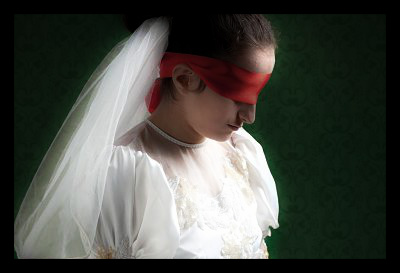Child Brides Fight Back

In recent years, a number of young women have rebelled against the husbands they were forced to marry. In April, a 14-year-old in Kano, Nigeria, murdered her 35-year-old husband with rat poison at their wedding celebration. Another, Zeinabou Moussa, ran away from her husband’s home on at least four separate occasions. After a final incident, her husband divorced her. Her parents say she will not be forced to marry again.
Zeinabou is one girl of many millions who are forced to marry early and become a child bride. In West Africa, around half of girls under the age of 18 are forced to marry. In regions of Chad and Niger, that number is around 70 percent. Girls under 15 in these countries are more likely to be wed than anywhere else in the world.
There are a number of reasons practices like this are kept in place. The first is poor education. Parents will often send their young boys to school because a higher value is placed on men. Many of the families who send their daughters to be child brides are often very poor and can expect that they will get a dowry in return from these educated men. Additionally, parents do not feel that it is appropriate for their daughters to engage in promiscuous activity out of wedlock, which is another reason early marriage is so prominent.
The practice is part of a vicious cycle. Adolescence, as well as education, is cut short, and this leads to an increase in teenage pregnancy and deaths during births. The spread of HIV is also adding to the problem.
Although there is some rebellion beginning against this tradition, many are not optimistic about the outcome. The Ford Foundation from New York conducted a study that showed that, on the whole, the trend in West African countries is headed toward even younger child brides.
Still, small pockets of land are getting better. In Nigeria and Niger, girls are learning about the potential risks of early marriage in special schools provided by the U.N. Population Fund. By the year 2018, over 150,000 girls will have completed this education.
The battle against child marriage is also being fought on the legal front. In countries like Malawi, girls can be forced to wed as young as 15 if they have their parents’ consent; however, upcoming legislation will attempt to bump it to 18, the legal age of consent in the country.
Such laws will play a big role in curbing the rising number of child brides, and all of the complications that accompany early marriages. The laws are prompting traditional chiefs to speak out against these marriages. Regarded for their community influence, these chiefs can spur campaigns that give girls the power to say “no.”
– Andrew Rywak
Sources: New York Daily News New York Times, The Economist
Photo: Girls Not Brides
